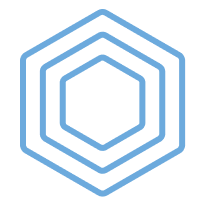Jon Harmon is one of the friendliest, most helpful people you'll come across in the R community (and, in a community known for being incredibly welcoming, that's saying something!). If you're involved at all with the R for Data Science Online Learning Community, you've likely seen his posts. There, he tries to "pay it forward" for all the awesome help he's gotten learning R over the last few years.
If you follow the #TidyTuesday social data project, you may have heard about the Tidy Tuesday Podcast, which he recently started, and which helps learners master R.
When not offering generous support to others, Jon is also busy developing his own packages, including the factory package and, along with Jonathan Bratt,the RBERT natural language processing package. And, believe it or not, Jon has a 9-5 as a Senior Data Scientist at Macmillan Learning.
Though Jon is steeped in the R world today, he only started learning R a few years ago. In this latest My R Journey interview, he reflects on his path to R, how he learned the tool, and what it has offered him professionally.
Why did you decide to learn R?
A few years ago, a group of us at work decided to start learning about machine learning, since it seemed to be an interesting way for us to do some of the things we'd always wanted to do.
How easy or difficult was learning R? What resources were most helpful?
I tried to learn Python before R, but it never clicked. I switched to R... but that didn't click at first, either. Eventually my company sponsored a day-long training for several of us from Jared Lander. He introduced us to the tidyverse, and suddenly it all started to actually make sense. Nothing against Jared; he's very helpful and active in the R community. But I really think "go find packages by Hadley Wickham" was the most important thing I learned at that training session.
I really think "go find packages by Hadley Wickham" was the most important thing I learned.
After that, I bought and started reading a copy of R for Data Science by Hadley Wickham and Garrett Grolemund, and that definitely helped. The most helpful things, though, were:
From there, I learned about the R4DS Online Learning Community, which I now manage. It's been super helpful to my continued learning to work with the R4DS community. I now hold an "office hour" on our Slack every Saturday to help people figure out how to do things in R, and I constantly learn new tips and tricks by working through new problems.
In what ways has learning R changed your work?
I've always been interested in data, but learning R unlocked options I didn't know I was lacking. I now work in R all day every day. Things that used to take days of tedious work can now be accomplished in seconds (although there were definitely some learning steps that were necessary to get them to that point).
Learning R unlocked options I didn't know I was lacking.
I was lucky enough to get a job as a data scientist before I really knew much about modern data science (which has inflamed my impostor syndrome ever since), but now I really feel like I know what I'm doing. R lets me find valuable insights for my company, and keeps my job interesting.Â
What do you think people considering learning R might not appreciate about it?
With a few R commands, you can produce graphs that are high-enough quality to appear in print (see, for example, the bbplot package, developed and used by the BBC data team). With a few more, you can produce a reproducible report that updates itself automatically. And with not *that* many more, you can do pretty much anything, from projecting sales at your business to automatically responding to customer questions, and beyond.

You need to be signed-in to comment on this post. Login.